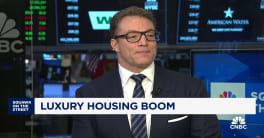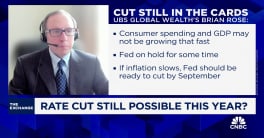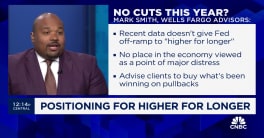Consumer confidence continued to rise in August, which economists largely attribute to a drop in gas prices over the past several months. However, despite the improvement in recent months, they say the index remains at depressed levels.
The Conference Board reported Tuesday that consumer confidence climbed for the third straight month to a reading of 56.9, above both the 53.0 level expected by economists and July's 51.9 figure. One year ago, the index stood at 105.6.
All the gain was in the expectations component, which jumped to a six-month high of 52.8 from 42.7.
Economists say the drop in gas prices helps explain the decline in one-year inflation expectations to a five-year low of 6.7%, following July's 7.5%.
"The expectations index is very sensitive to movements in gas prices, so this rebound almost certainly is a reflection of the drop in prices over the past few weeks," wrote Ian Shepherdson, chief U.S. economist at HFE, in a research note.
Shepherdson added that the expectations index remains "extremely" low by historic standards, consistent with declines in real consumers' spending. "The August rise is welcome, but it is trivial compared to the plunge over the past year."
Other economists also noted the survey's overall depressed levels despite the recent rises.
"Putting the rebound in context: at 56.9, the headline index is still a lot closer to the low of 51.0 reached in June than it is to the reading of 87.3 that the index started this year at," said Paul Ashworth, senior U.S. economist from Capital Economics. "It appears that the housing meltdown and the weakness in the labour market are still weighing heavily on consumers."
Ashworth also pointed to the gap between survey respondents who said jobs are plentiful compared to hard to get, which widened to -18.9 in August from -16.6. "Over the past couple of years that gap has proved to be a good leading indicator of the unemployment rate," Ashworth said, adding that its new level is consistent with the unemployment rate hitting 5.9% over the next few months, compared to 5.7% in July.
Consumers' appraisal of the job market continued to be pessimistic in August, with those saying jobs were 'hard to get' increasing to 32.0% from 30.2% and those claiming jobs were 'plentiful' decreasing to 13.1% from 13.6%.
"Households are finding jobs the hardest to get since October 2003, which suggests further increases in unemployment in the months ahead," noted James Knightley, chief economist at ING Financial Markets. "Nonetheless, consumer fundamentals remain fragile with energy prices failing to fall any further in August, unemployment rising while real wage growth remains negative."
As such, Knightley said weaker spending growth through the second half of the year is likely, particularly given that the tax rebate boost has also come to an end.
In other aspects of the Conference Board survey, respondents claiming business conditions were 'bad' decreased to 25.8% from 32.4% while those claiming business conditions were 'good' increased to 11.9% from 9.2%.
In the labour market, consumers expecting fewer jobs in the months ahead fell to 30.6% from 37.3%, while those anticipating more jobs rose to 10.5% from 8.0%. Meanwhile, the proportion of consumers expecting their incomes to increase saw a slight gain to 14.7% from 14.3%.
By Stephen Huebl and edited by Nancy Girgis







